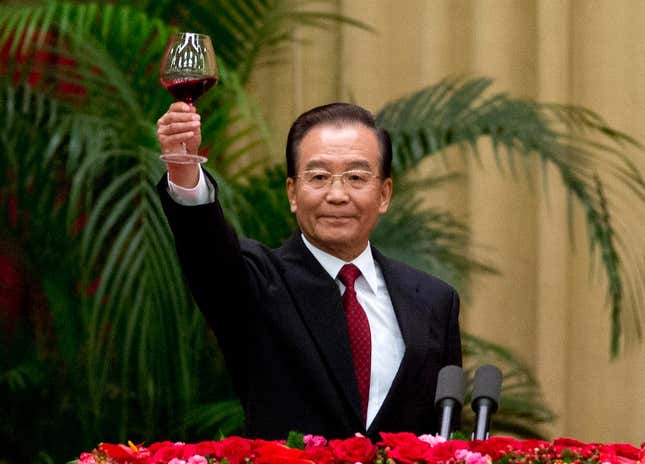
Whether it’s the fortune of Chinese Premier Wen Jiabao’s family or the downfall of disgraced party leader Bo Xilai, more attention is being paid to the capital that China’s wealthiest send out of the country. Now we know more about the amount of money that has eluded Chinese capital controls (which forbid citizens to send more than the equivalent of $50,000 abroad) in recent years: $3.7 trillion between 2000 and 2011, and more than $600 billion in 2011 alone.
Global Financial Integrity, an NGO that attempts to track illicit capital flows, detailed those findings in a new report. The bulk of its estimate, 86.2%, comes from alleged trade mispricing, as Chinese exporters massage reported sales figures with help from their foreign partners to hide profits abroad. But there are many ways for funds to find their way overseas, from art to gambling. Over the last six years, GFI believes some $596 billion in Chinese funds have been moved to tax havens.
While GFI’s estimates are large, it’s clear this is a very real phenomenon: A more conservative figure for outflows from a Standard Chartered bank economist relying only on public data suggests that at least $71 billion left China just this past summer. Another recent estimate suggests some $225 billion left in the year leading up to September 2012.
Some of that money is sent “round-trip” to tax havens like Hong Kong and the British Virgin Islands to return as preferential “foreign” direct investment, which is subject to government tax concessions, loan guarantees and other public considerations.
As “naked officials” send their families as well as their fortunes abroad, Chinese leadership fears a loss of public trust. The ruling party is pushing reform measures and censoring news of the fortunes of leading political families, but Chinese citizens appear skeptical that much will change: Concerns about inequality and corruption in the country have increased over the last four years.
If the country’s economy continues slowing, there will be both a greater need for that capital in China and a greater incentive to send it abroad, a tension that no doubt troubles the minds of the country’s next generation of leaders as they take power this month. A sign of their concern: Last year, China’s central bank released figures suggesting some 18,000 officials had left the country with $130 billion between 1995 and 2008, but quickly scrubbed the figures from the record.
While the capital flight isn’t large enough to trigger a financial crisis, it does pose long term problems, the GFI study notes. It exacerbates wealth inequalities, since it’s the already rich who have the means to shelter their riches abroad; and it degrades trust in the government. In economic terms, round-tripping makes Chinese investment inefficient, and tax evasion will become a larger problem as the country seeks to rebalance itself to support a consumer economy and fund stimulus projects to fight a growth slow-down. ”The social, political, and economic order is not sustainable in the long-run given such massive illicit outflows,” Dev Kar, an economist and co-author of the GFI study, said in a statement.